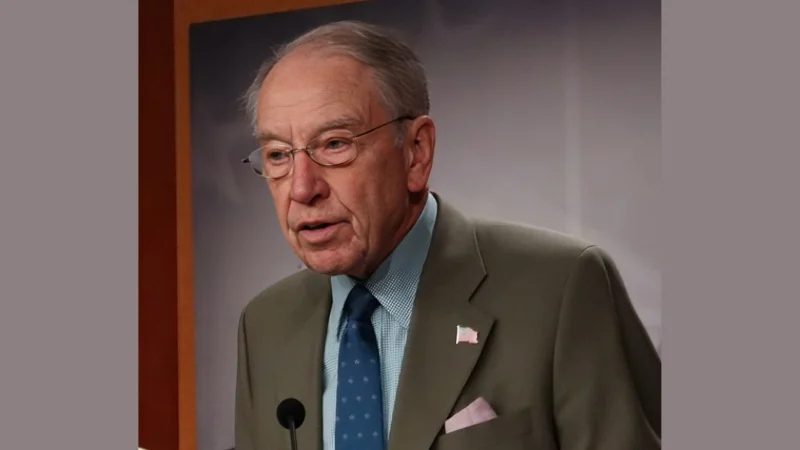Chuck Grassley, Chairman of the Senate Judiciary Committee | Facebook, Senate Judiciary Committee Republicans
Chuck Grassley, Chairman of the Senate Judiciary Committee | Facebook, Senate Judiciary Committee Republicans
Senate Judiciary Committee Chairman Chuck Grassley and Ranking Member Dick Durbin have called on the Department of Justice (DOJ) to change its procedures regarding congressional attendance at Foreign Intelligence Surveillance Court (FISC) and Foreign Intelligence Surveillance Court of Review (FISCR) proceedings. This request comes ahead of the expiration of Section 702 of the Foreign Intelligence Surveillance Act (FISA), scheduled for April next year.
The lawmakers expressed concern that current DOJ procedures, which were first established by the Biden administration in November 2024 and continued under the current administration, restrict congressional oversight and conflict with Section 5(d) of the Reforming Intelligence and Securing America Act (RISAA).
“The FISC Procedures, as drafted, comport with neither the plain language nor the spirit of RISAA, and raise numerous separation of powers concerns. As the Chairman and Ranking Member of the Senate’s primary committee of jurisdiction over the Foreign Intelligence Surveillance Act, we are troubled by the Department’s lack of transparency and failure to engage meaningfully with our committee as these procedures were developed. We request that the Department amend the FISC Procedures to comply with the Constitution and RISAA,” Grassley and Durbin wrote.
RISAA was signed into law in April 2024. It requires DOJ to allow certain members of Congress and designated staff to attend FISC proceedings for oversight purposes. However, in November 2024, DOJ implemented policies requiring members and staff to accept a set of conditions before attending these hearings—a policy approach maintained by both administrations since then.
Among these restrictions are prohibitions on sharing information from FISC proceedings with other members or their staff; limits on requesting documents or information from participants; authority for DOJ staff to remove observers at their discretion; limiting how many congressional observers can attend at one time; barring designated staff from attending alongside their specified member; and banning note-taking during proceedings even though classified notebooks are typically permitted for congressional staff.
Section 5(d) of RISAA was included in last year's reauthorization of Section 702 specifically to safeguard Congress' ability to oversee FISC activities.






 Alerts Sign-up
Alerts Sign-up